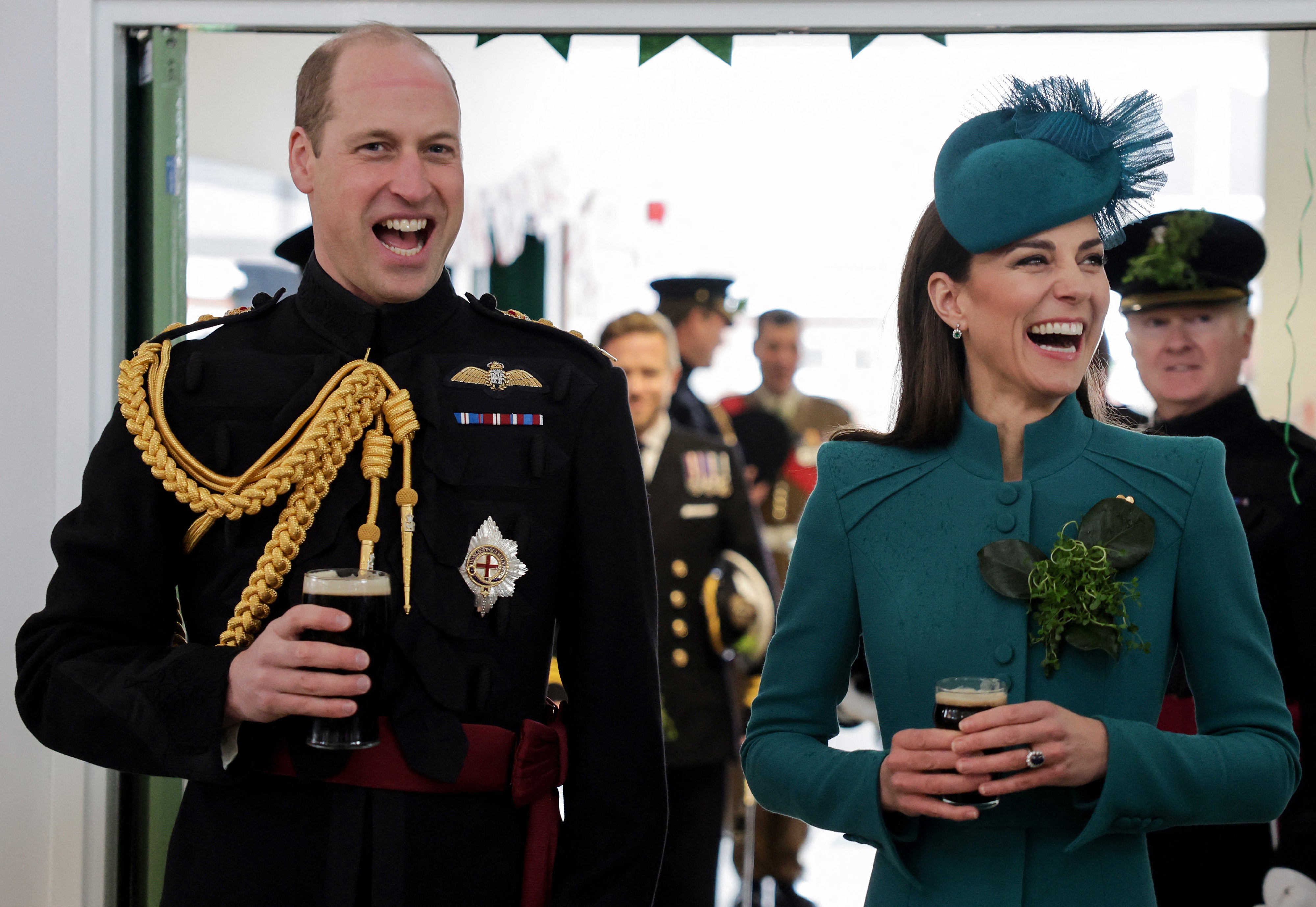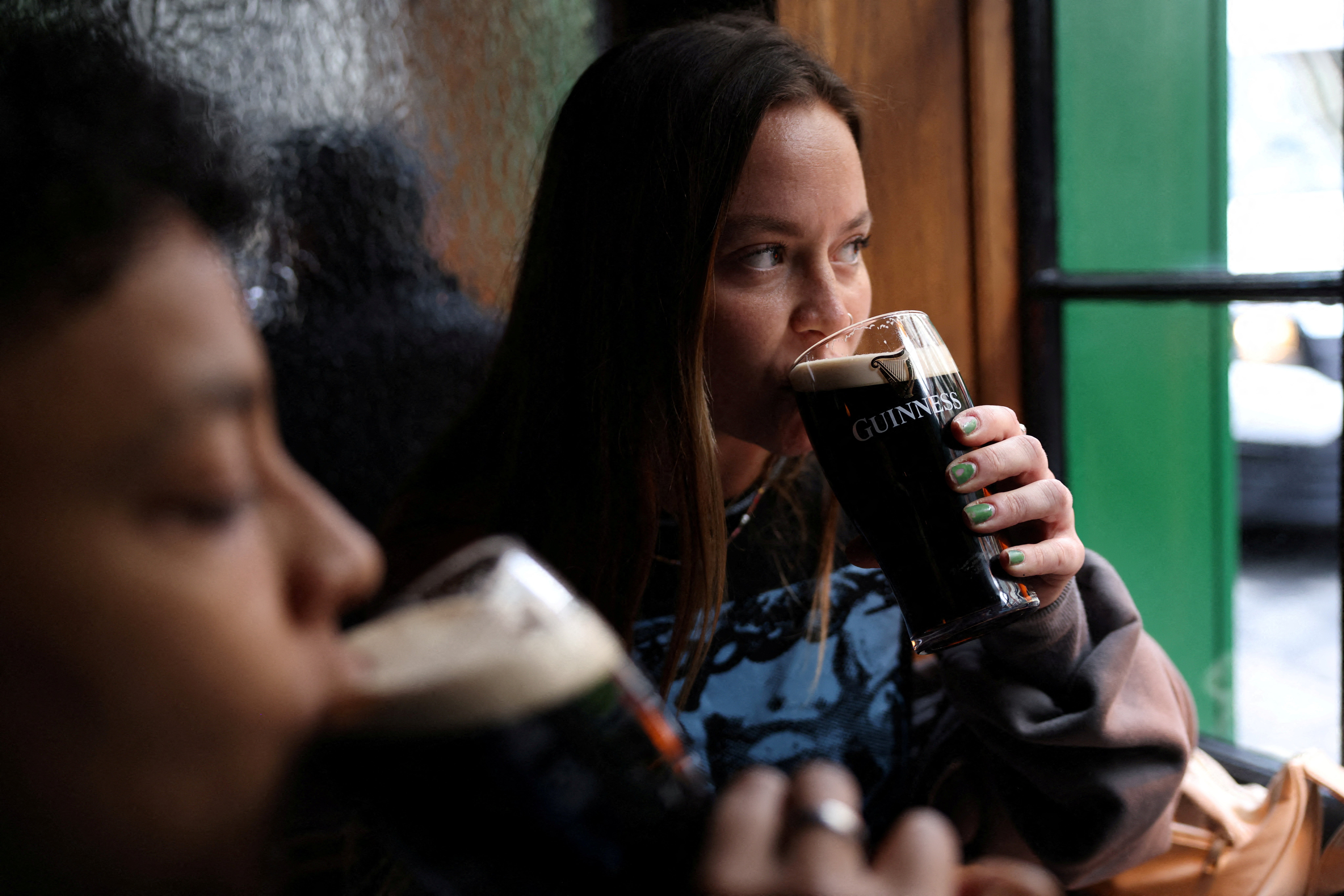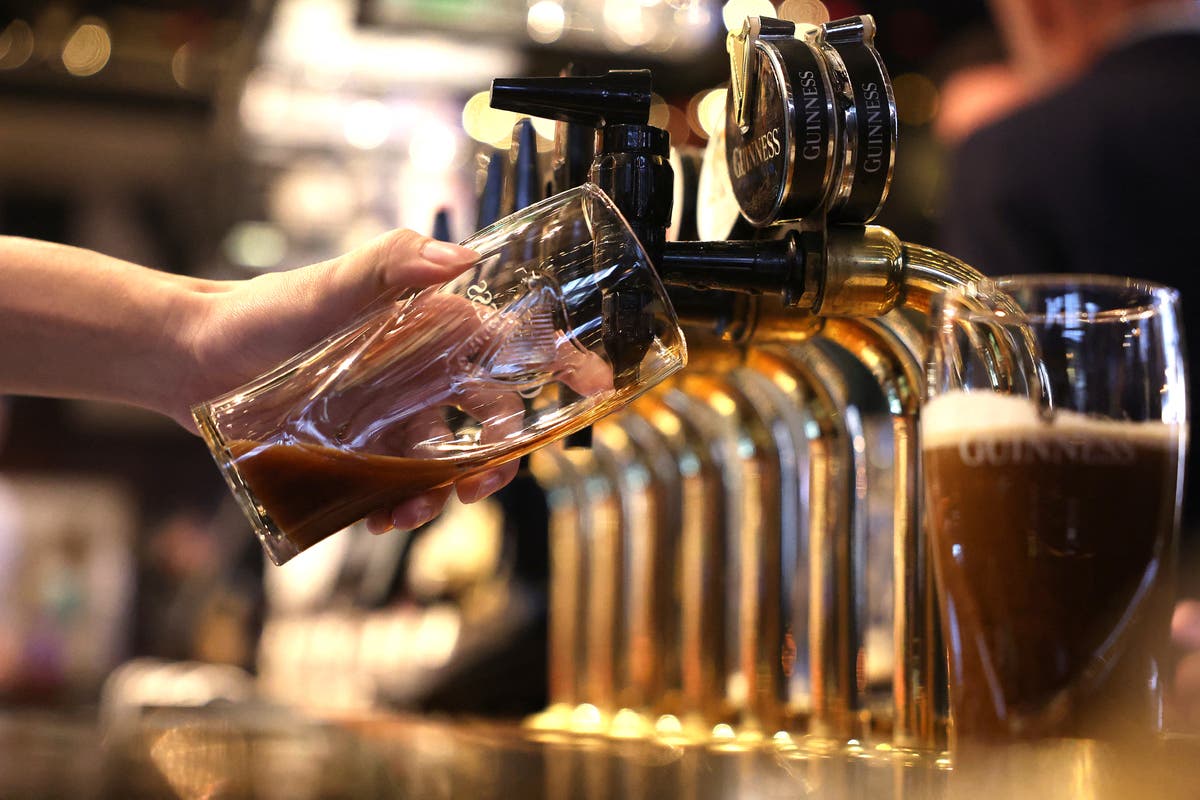Everyone is officially drinking the Kool-Aid. It’s smooth, creamy, devilishly dark, and happens to be selling out across the board. Of course, I’m talking about Guinness, the standout star of 2024. People want to pontificate about pubs that specialise in it. They want to post Instagram videos of themselves “splitting the G” – when the line between the stout and foam lands in the middle of the first letter on a branded glass. But mostly, they just want to guzzle the stuff.
“People seem to have forgotten there’s anything else to drink,” says Oisín Rogers, landlord at The Devonshire in central London, which has become famous for its idiosyncratic pour of the Irish draft beer despite only opening last November.
“We poured 25,000 pints in seven days last week,” adds the Sligo-born publican. “The volume is beyond mad; I could never have imagined it. It has been absolutely crazy.”
In October, Guinness was the top-selling beer in the UK, according to Nielsen data. And earlier this month, reports of a nationwide shortage swept through the UK’s pubs, with some issuing warnings to regulars that quantities might be limited over the festive season as supplies dwindle due to overwhelming popularity. “Over the past month we have seen exceptional consumer demand for Guinness in GB,” says a spokesperson for the beer company. “We have maximised supply and we are working proactively with our customers to manage the distribution to trade as efficiently as possible.”
Last week, The Old Ivy House in Clerkenwell introduced “Guinness ration cards”, telling customers they must buy two other drinks before being allowed to order a pint of Guinness.
“In these difficult times… Ladies and gentlemen we are being rationed,” the pub said in a statement shared on Instagram. “The #blackgold is in short supply countrywide. It’s true. We are down to three barrels with our next delivery not due until next Wednesday – at the busiest time of the year!! Ask at the bar for your ration card. We’ll get through this together.” But the rationing idea only went so far; by 10pm on Friday night, The Old Ivy house had run out of Guinness.
The Hero in Maida Vale also ran out of the draught stout this weekend, as did several pubs in Manchester and Liverpool, according to some disgruntled Guinness drinkers on X (Twitter). “We still don’t have any,” says Joe Warwick, head of hospitality at Public House and currently working at The Hero. “Our distributor just can’t get hold of anymore; they’re going to have to up their production. In November, Guinness made up 25 per cent of all of our beer sales. A lot of our independent beer brands have been doing really well since the shortage, so we’re just going to keep pushing those out to disappointed Guinness fans for now.”
It’s quite a turn of events for the humble Dublin stout company founded in 1759 that was once synonymous with older, somewhat crustier, and mostly male pub-goers. It was either that or raucous rugby lads.
Today, its appeal is ubiquitous. Guinness is the trendy drink of choice among the likes of Paul Mescal, Ed Sheeran, and even the Duke and Duchess of Cambridge. Last year, Kim Kardashian was photographed enjoying a pint in a London pub, while in May, Olivia Rodrigo wore a “Guinness is good4u” T-shirt to perform in Dublin.
Perhaps it comes as no surprise that Diageo, the drinks giant that owns Guinness, reported a 24 per cent rise in the number of women drinking the Irish stout in Great Britain at the start of this year.
It has been embraced by the film and fashion packs, too; a Netflix series starring Anthony Boyle exploring the history of the Guinness family is underway, while JW Anderson recently launched a capsule collection in collaboration with the beverage brand. A party to celebrate the launch was attended by Alexa Chung, Joe Alwyn, and Paapa Essiedu, as well as the Northern Irish designer himself, Jonathan Anderson.

Just last week, Guinness was also the star of the show at a dinner hosted by Vogue columnist Slutty Cheff as part of a partnership with Adidas Originals where guests were served oysters alongside Black Velvet cocktails, which are comprised of Guinness and champagne.
None of the zeitgeisty appeal comes as a surprise to Rogers, who has put an immense amount of effort into ensuring The Devonshire maintains its stronghold over Guinness drinkers, considering every last detail from temperature and glassware to foaminess and bubble dynamics.
“Eclectic, cool and creative people have always appreciated Guinness,” he says. “And the product has improved since the pandemic, largely thanks to influencers becoming really hot on naming places that don’t do good pints.”
Indeed, a rising number of so-called “Guinn-fluencers” have been driving an uptick in sales by taking part in various reviews and challenges that garner thousands of views. Alex Hendy, aka The Schooner Scorer, regularly goes viral for his short, snappy videos documenting his hunt for the perfect pint. And yes, that includes Guinness.

“This year, Guinness has continued to build on its legacy as a brand that celebrates quality, creativity, and connection,” says a Diageo spokesperson. “Its popularity has grown as part of a broader strategy that leverages its rich heritage while embracing fresh opportunities.”
There have been lucrative partnerships in the sporting world this year, too, with Guinness being the official beer and non-alcoholic beer sponsor for the Premier League as part of a four-year deal. “These initiatives, along with countless others, represent the ongoing evolution of Guinness’s brand story, built on a foundation of authenticity, innovation, and inclusivity.”
All this is very well and good, providing everyone can still find pubs that stock the stout. Thankfully, that doesn’t seem to be a concern for Rogers, for whom business continues to boom. “We’ve got a really good relationship with our suppliers and told them in early November what we thought we’d sell so the shortage hasn’t affected us,” he says. “It’s the same process as if I’m ordering toilet roll.” Let’s hope they won’t be running out of that anytime soon, either.

